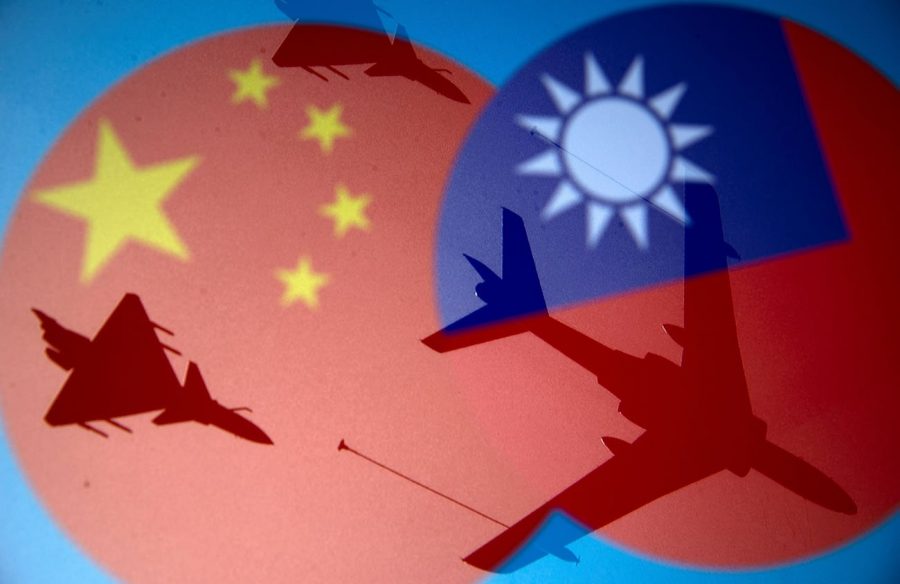The China/Taiwan conflict: what you might want to know
This complicated conflict has the potential to start a war, so here are some important things to keep in mind as it continues.
April 28, 2021
Recent invasions of Taiwanese territory by the Chinese military are raising tensions around the world.
China and the much smaller island of Taiwan (which sits roughly 100 miles off of China’s southeast coast) have been bickering for decades. This conflict can be dated back to the late 1940’s when China had a Civil War, otherwise known as the Chinese Communist Revolution, in which the Communist Party of China was led by Mao Zedong. When Zedong confirmed China’s new rule under the People’s Republic of China and a communist state in 1949, the remaining Kuomintang members, who had recently controlled the Chinese government, fled to Taiwan.
The island was still managed by China at that point in time, but as the years went on Taiwan’s government and society as a whole morphed into a more democratic state. Throughout the 1980’s and 1990’s, China attempted to entice the island to reunite with the mainland by using legislative tactics and by promising economic assistance to Taiwan. Taiwan rejected China’s efforts, and the Chinese government, to this day, have continued to not accept Taiwan as an official independent nation with a recognizable government.
The first democratic election of Taiwan took place in 2000 and these elections have proceeded for the last 20 years. China, threatened by the elections and by the authority of Taiwan’s Republic of China, put into place an anti-secession law in 2004 which would enable China to stop Taiwan from becoming an independent country by any means necessary. These events have led us to where the conflict stands today.
United States foreign relations officials have directed much focus to the issue regarding Taiwan and China. They have taken into consideration the possibility of a war between the two nations, especially after China’s military, the People’s Liberation Army (PLA), warned Taiwan through a series of air and naval invasions of territory that Taiwan claims as its own just weeks ago. An excerpt from the Chinese news service, Global Times stated, “The PLA exercises are not only warnings, but also show real capabilities and pragmatically practicing reunifying the island, if it comes to that,” in one of their recent articles.
Additionally, Chinese officials from Beijing have warned that Taiwan is aggravating a possible war that they could not win. The United States was ambiguous on the conflict for quite some time, but after the incursions of the PLA into Taiwanese-claimed territory, the Biden administration has described their commitment to backing Taiwan as “rock solid.” Chinese officials advised the US, “not to send any wrong signals to ‘Taiwan independence’ elements to avoid severe damage to China-US relations.” Statements such as these have poured in from China as the US continues to show increasing aid to Taiwan.
It is important as a United States citizen to keep an eye on possible escalation of this conflict. If war were to break out between Taiwan and mainland China, the US would be required to make some cautious yet significant decisions. After all, the US’s number one source of imported goods is China, and China is one of the top countries that the US exports to. A shift in such a relationship could mean economic downturn for the US, as well as societal problems that are yet to be determined.
There is no telling whether war will happen or not, however what is known is that the tension between China and Taiwan is increasing dramatically and should be monitored extensively by our nation. For now, it seems that the US has sided with democratically and more specifically with the independence of Taiwan against a totalitarian and determined China.






